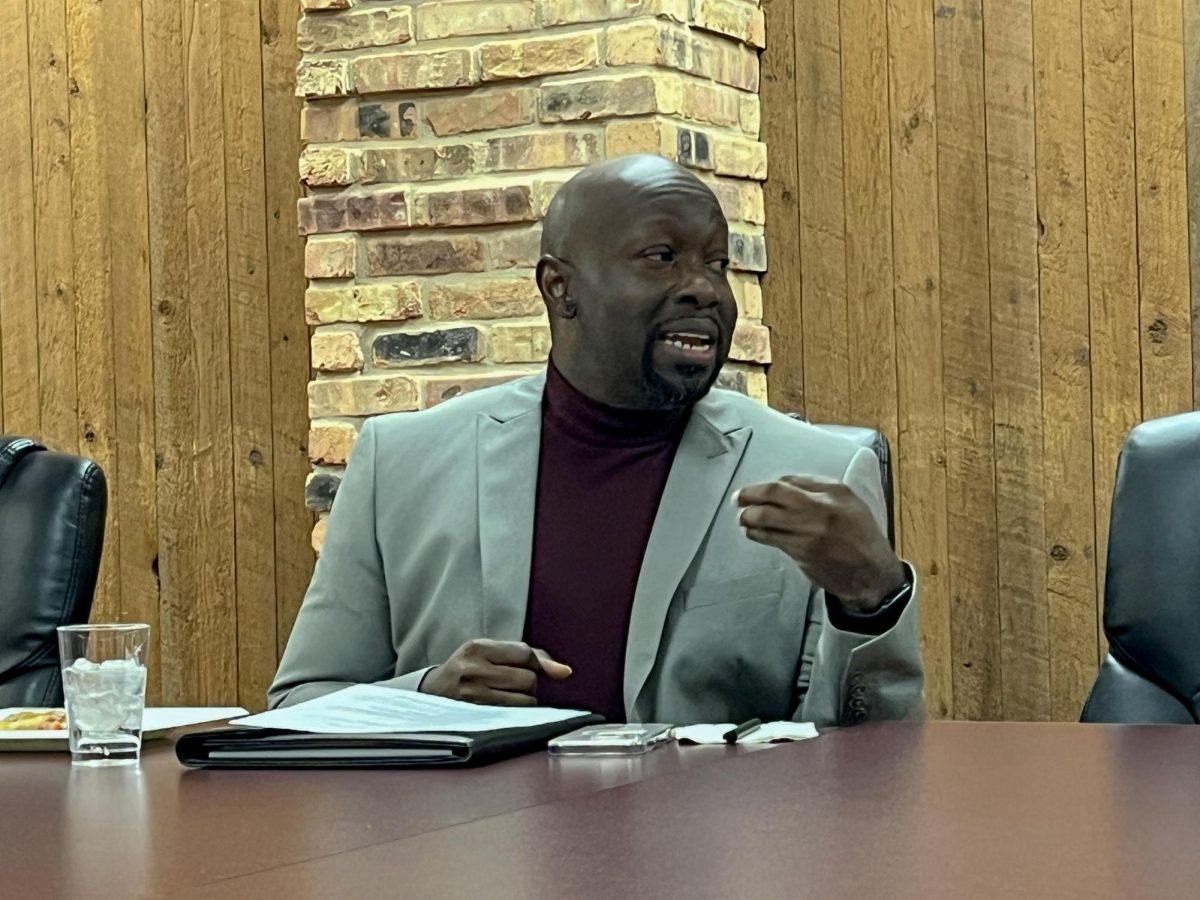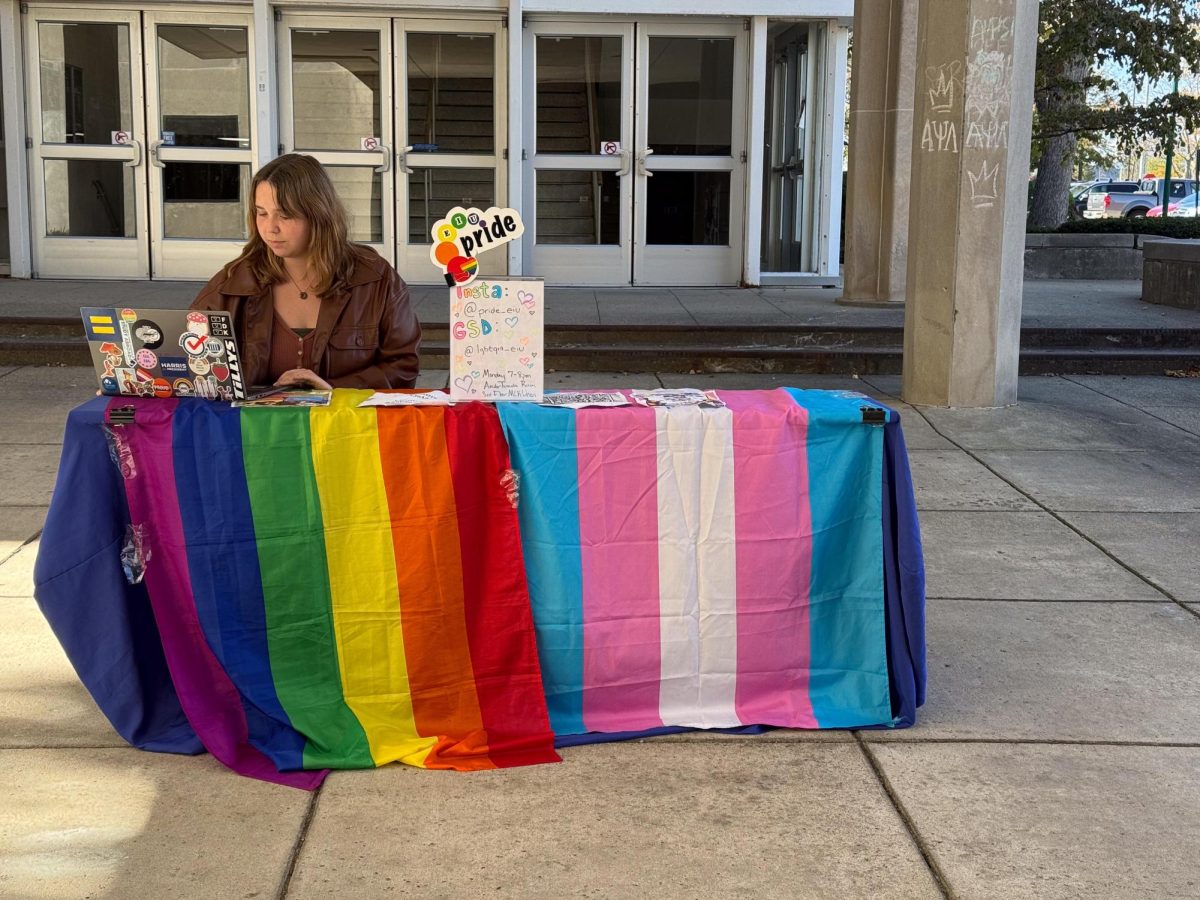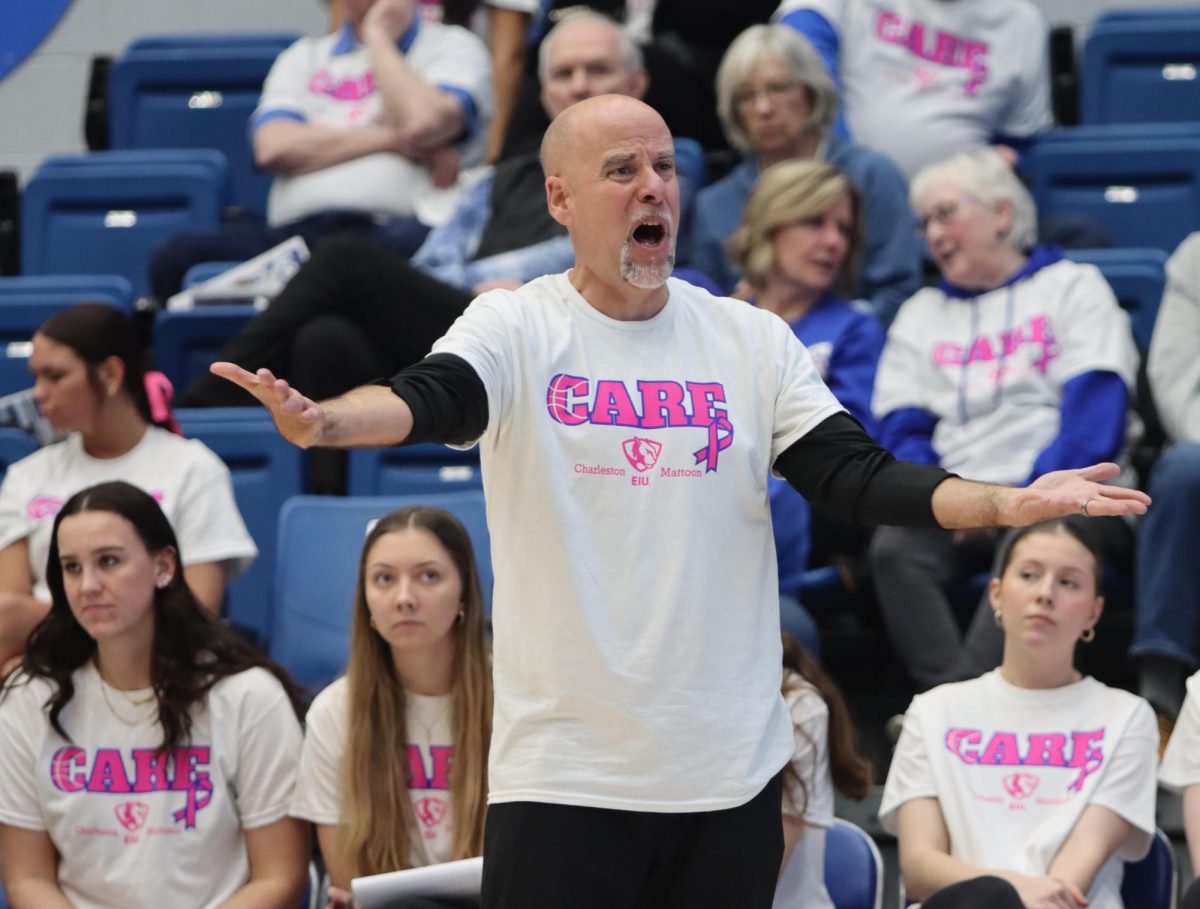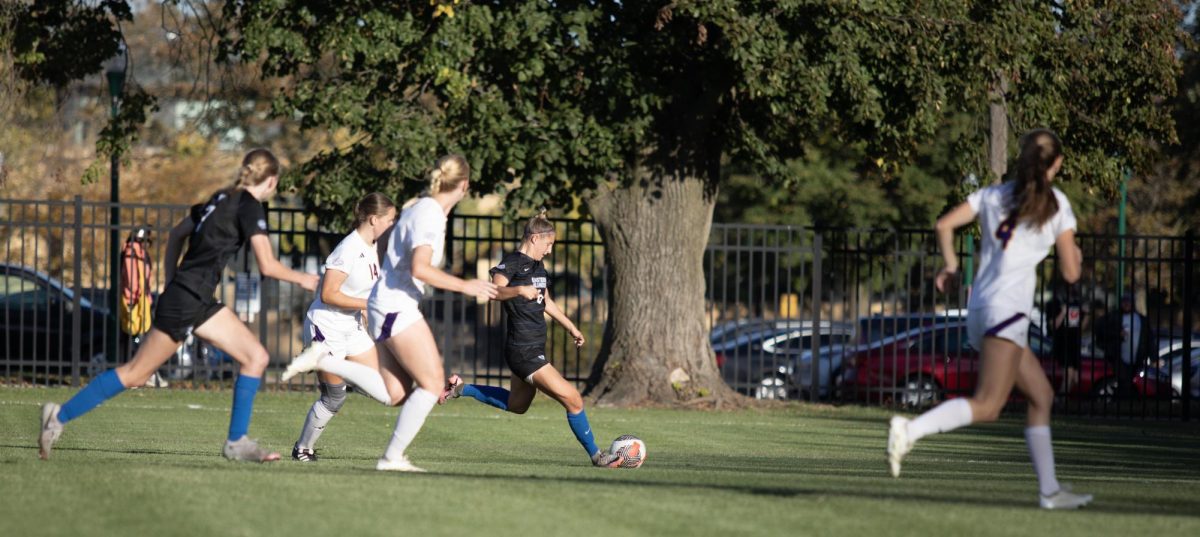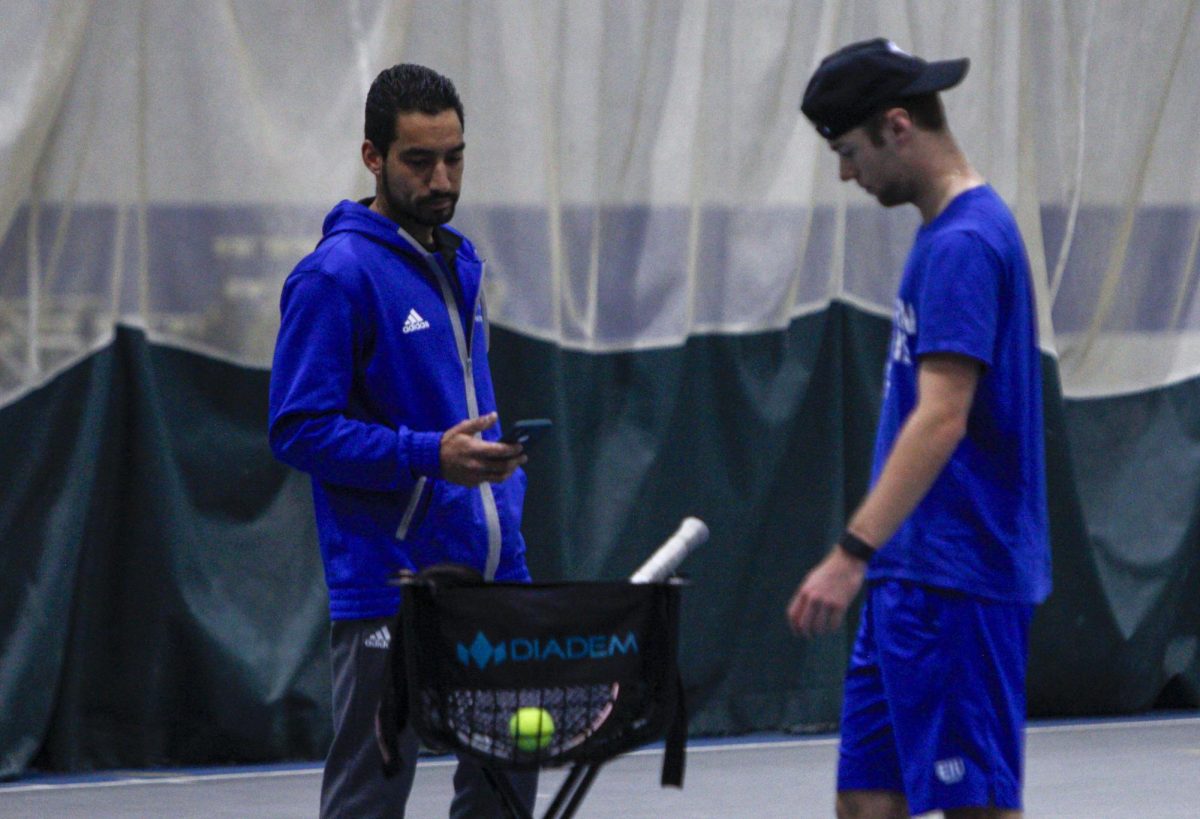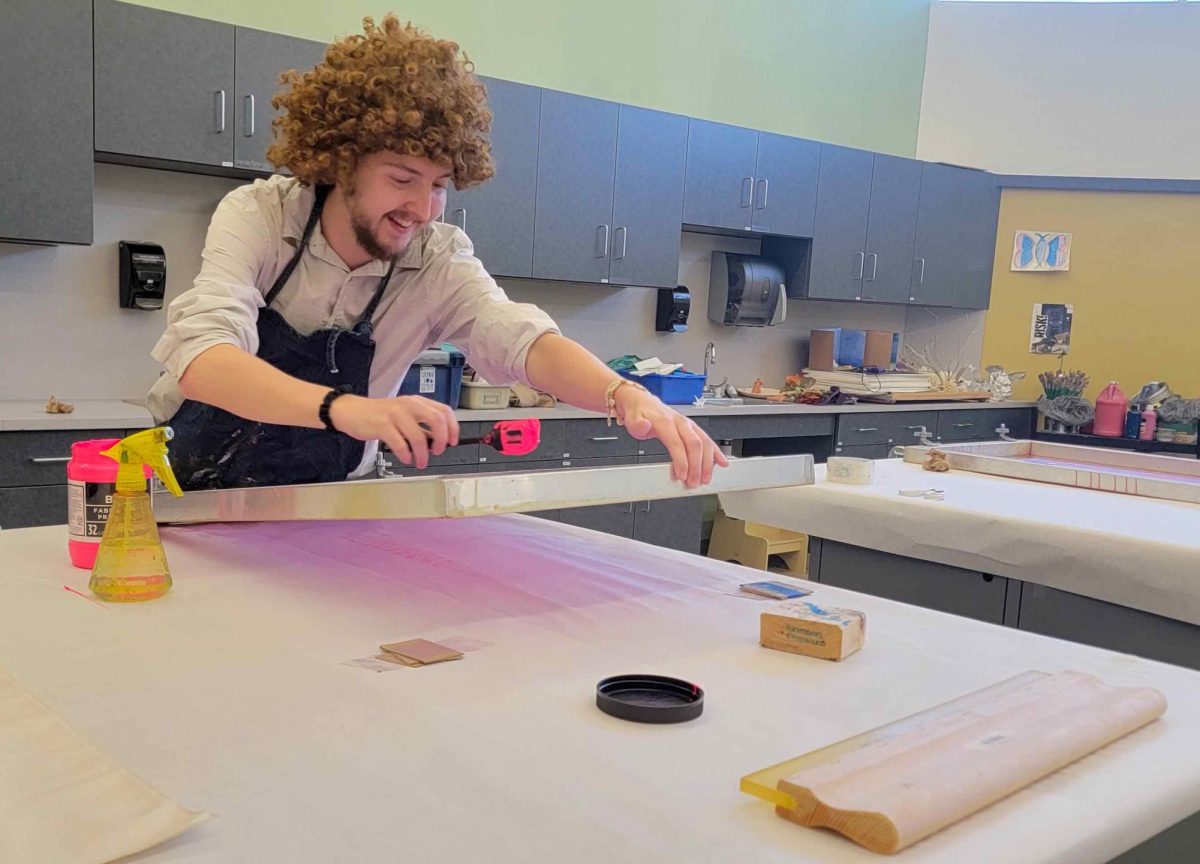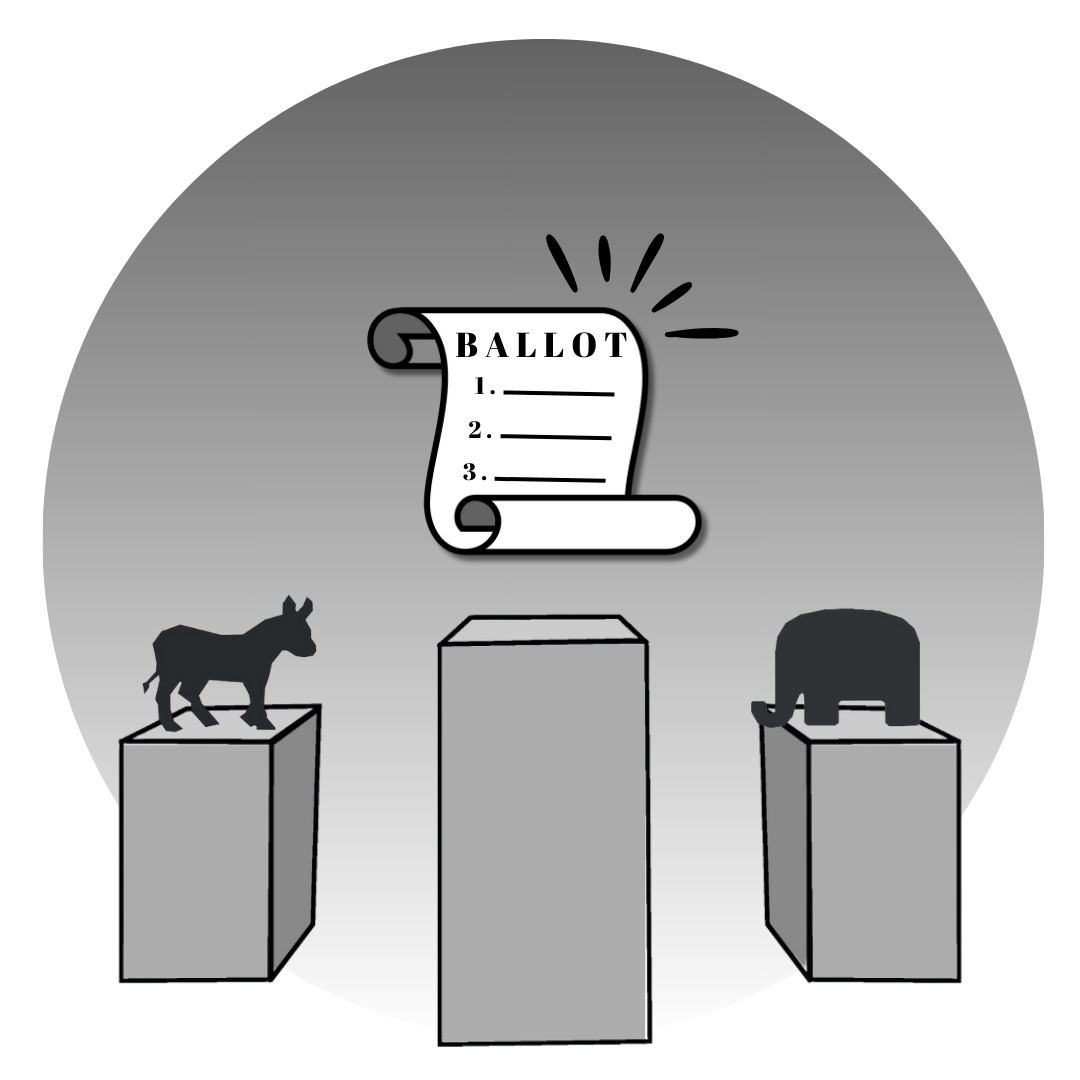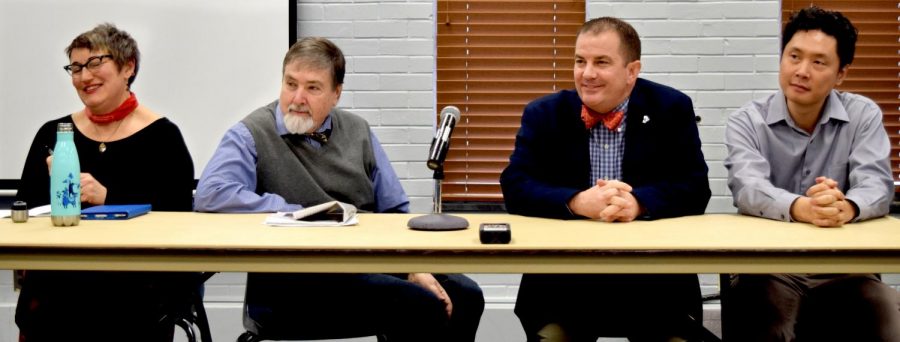Faculty forum looks at threats to higher education
Panelists speak at a faculty forum where threats to higher education, including decreased funding, were addressed.
February 13, 2018
Decreased funding for colleges and universities and how the public misunderstands their mission were two threats to higher education looked at during a faculty forum on Tuesday.
The forum included an introduction from economics professor Teshome Abebe and four panelists: Provost Jay Gatrell, history professor Bailey Young, biological sciences professor Billy Hung and English professor Jeannie Ludlow, the coordinator of the women’s, sexuality and gender studies program.
All presenters introduced themes that centralized around changing the language and the image of higher education, sticking to Eastern’s mission and creating more connections on and off campus.
Hung discussed the public opinion that higher education has become less of an opportunity and more of a financial investment.
“(Students and parents) are going to see higher education more as a product, like a mortgage, like a car payment, and we can’t blame them, right?” Hung said. “Because we are asking them to invest more directly and in larger (quantities).”
Young said the increasing opinion of higher education acting more like a product is starting to affect students.
“Of course (students) are concerned about their future, but they’re also concerned about getting the most out of their education,” Young said.
Ludlow said there should be a positive correlation between happiness and higher education, which should supersede the current importance placed on job placement after graduation.
“We are not in the business of making or selling products, or even teaching people to sell products,” Ludlow said. “We are, if you will, in the business of promoting and enabling the pursuit of happiness.”
Hung said the threat of lower funding from the government has been hitting Illinois universities, and universities around the nation, for much longer than just the past two-year budget impasse.
“Yes, we had a budget impasse in 2015/2016 that was horrible, terrible,” he said. “We don’t want to do it again, but even if we take that out, even if we take that two years of no budget out of the picture, we’re still seeing a gradual, consistent, persistent, insistent downward trend in public funding for higher education, and (Eastern’s) not the only one.”
Ludlow’s presentation looked at HB 4103, which proposes many educational reforms, including a one-application system for all Illinois universities and requiring Illinois universities to accept all high school students with a B average or higher.
This bill uses the word “efficiency” 14 times, with eight of those times being in just one proposal, Ludlow said.
She said this is dangerous because using efficiency to measure success does not include a student’s quality of education.
Ludlow said universities must change the language being used to discuss higher education and its potential reforms, especially when they use words like “efficiency.”
“When we are arguing using our opponent’s language, when we allow those who oppose us to set the terms of the debate, we have already lost,” Ludlow said.
Gatrell said altering how higher education is discussed with the public is the first step toward positive change.
“What I do think we can do is talk about (mission and student outcomes) differently and talk about the important work we do in communities and in the lives of learners. Our learners succeed,” Gatrell said. “I think we can demonstrate (student success) in terms of the transformative capacity of higher education. Our students go on to live lives of significance, and that’s pretty important work.”
Gatrell said making changes that adhere to Eastern’s mission and its goals of student success is of utmost importance.
“You can have great ideas, but if you’re not talking about mission, if structure doesn’t follow mission and priorities, (change is) problematic,” Gatrell said.
Ludlow offered a list of solutions centered around the idea that collectivity is power. These included keeping in mind that scarcity is not a normal thing, having a necessity for faculty and staff to take on extra work is not normal, prioritizing time and saying no is respectable, and open communication with the community is key to changing public opinion.
Young echoed Ludlow, saying the threats currently coming toward higher education from the public are because of misunderstandings between the public and institutions of higher education.
“What can we do to spread the message beyond this room, beyond our classrooms with our students, that (Eastern) is efficient, (Eastern) is inspirational, (Eastern) is bringing resources to the state and the community?” Young said.
Brooke Schwartz can be reached at 581-2812 or at bsschwartz@eiu.edu.



